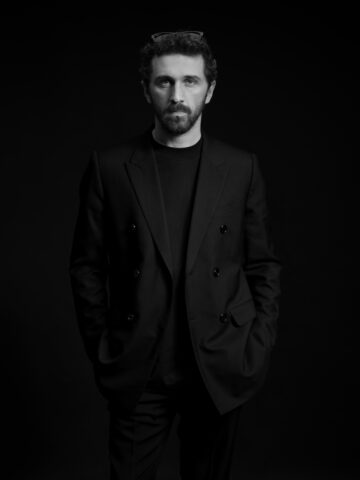
IN CONVERSATION WITH DAVID KOMA
Blumarine, long synonymous with butterflies, chiffon and a distinctly Y2K aesthetic, has…
Interview by Chiara Anzivino
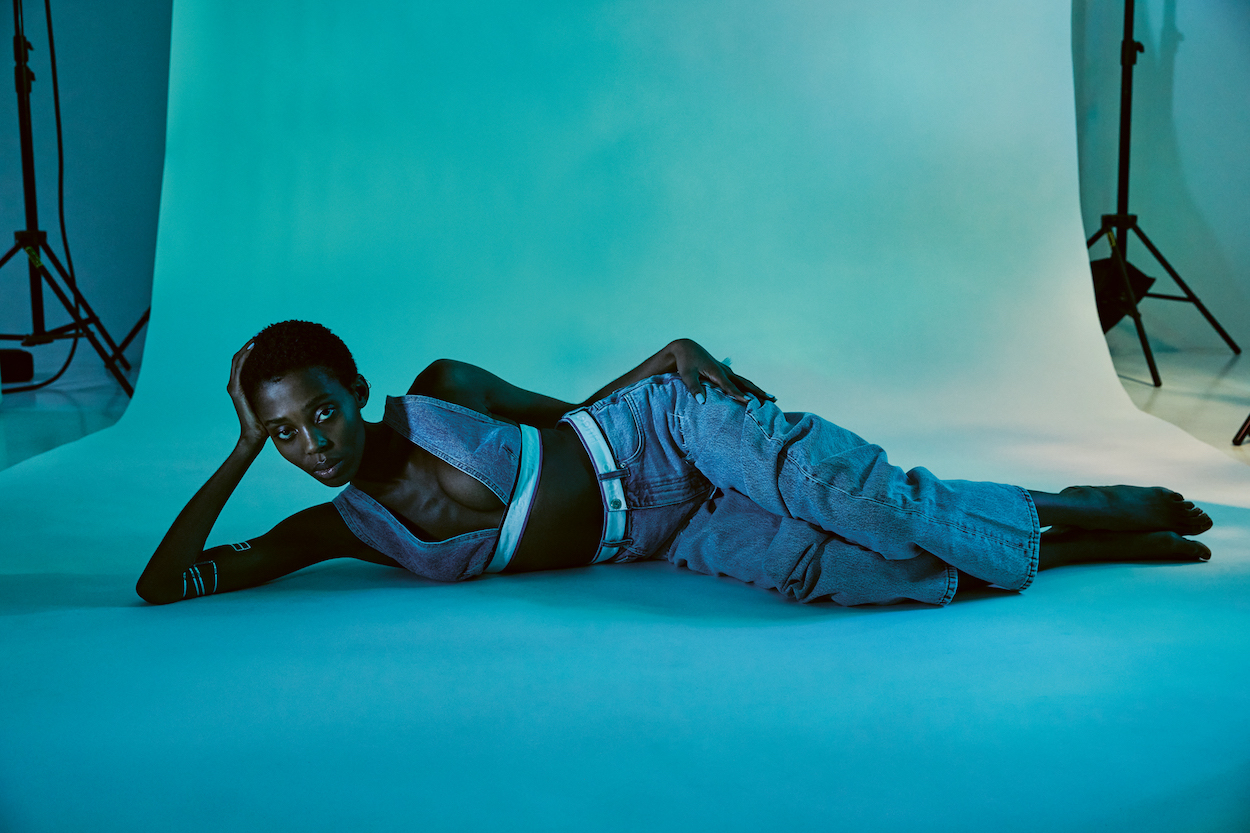
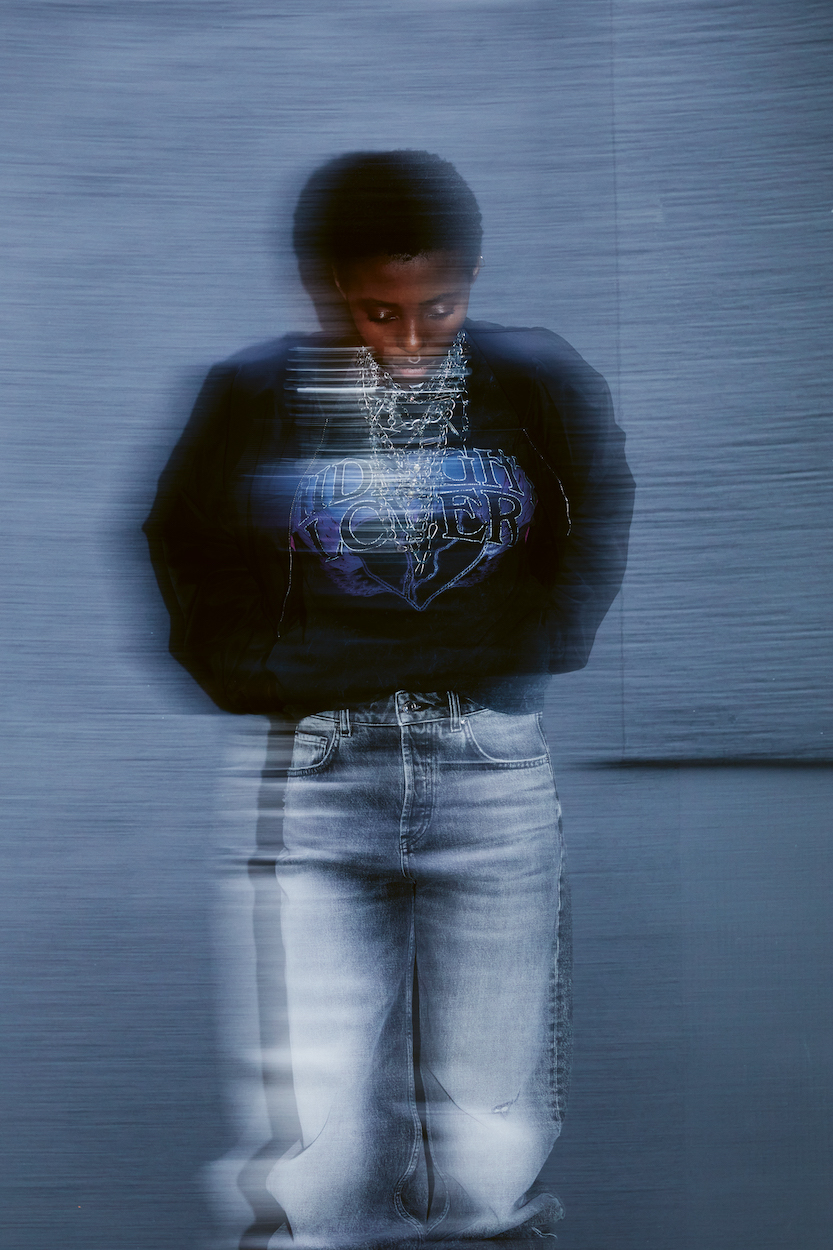



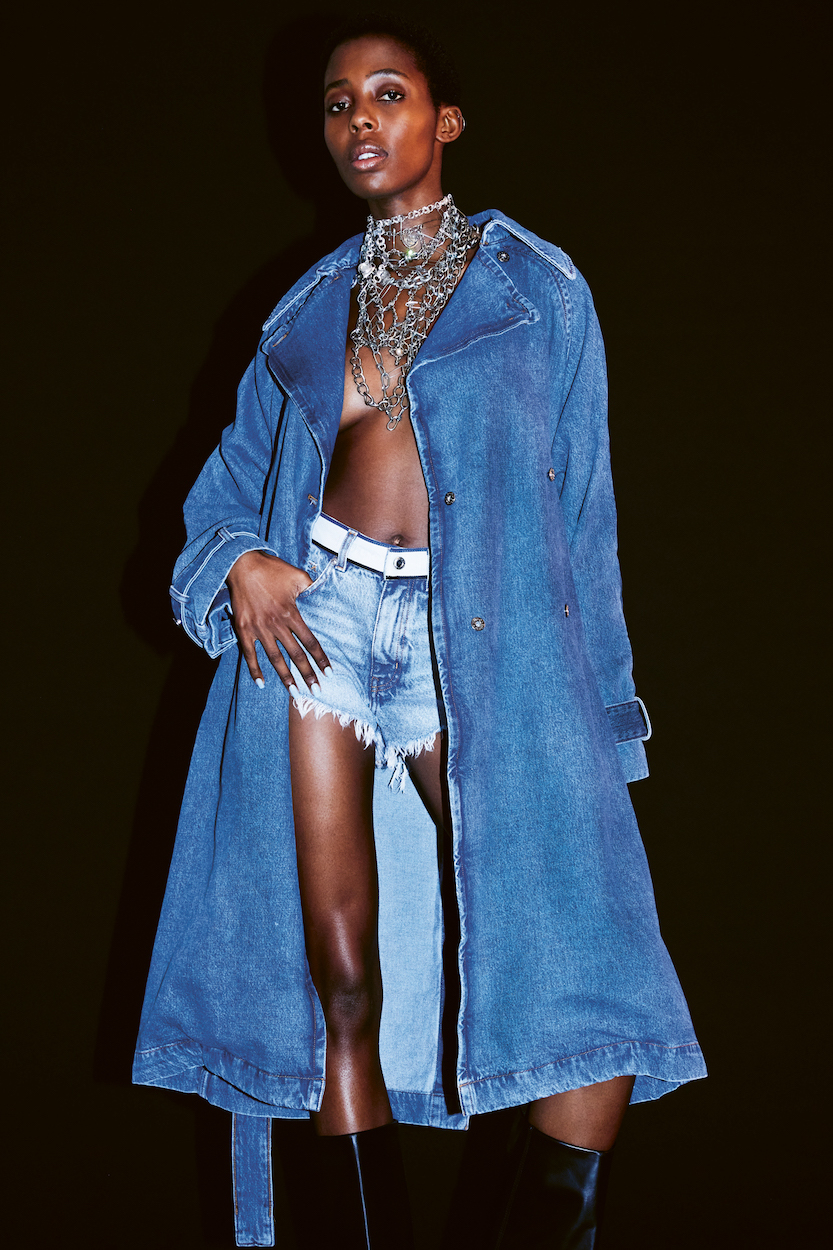
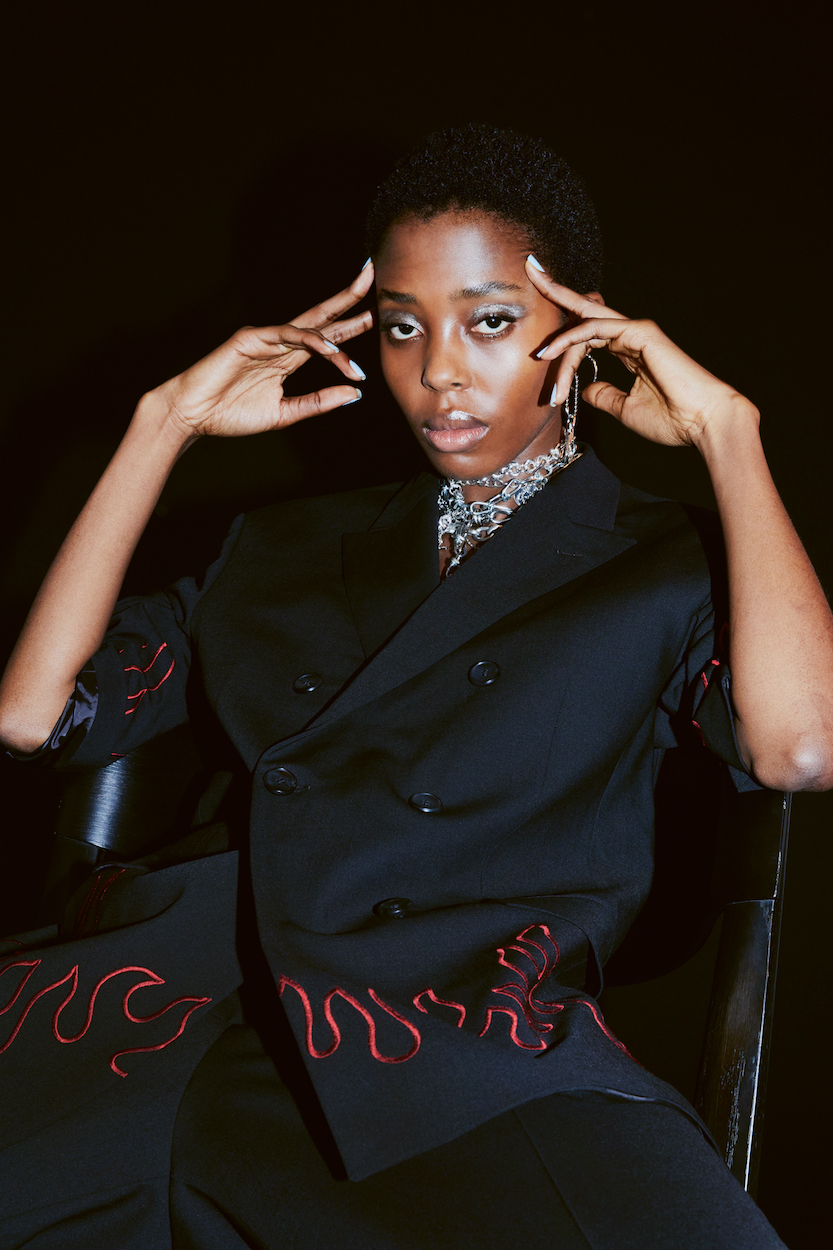
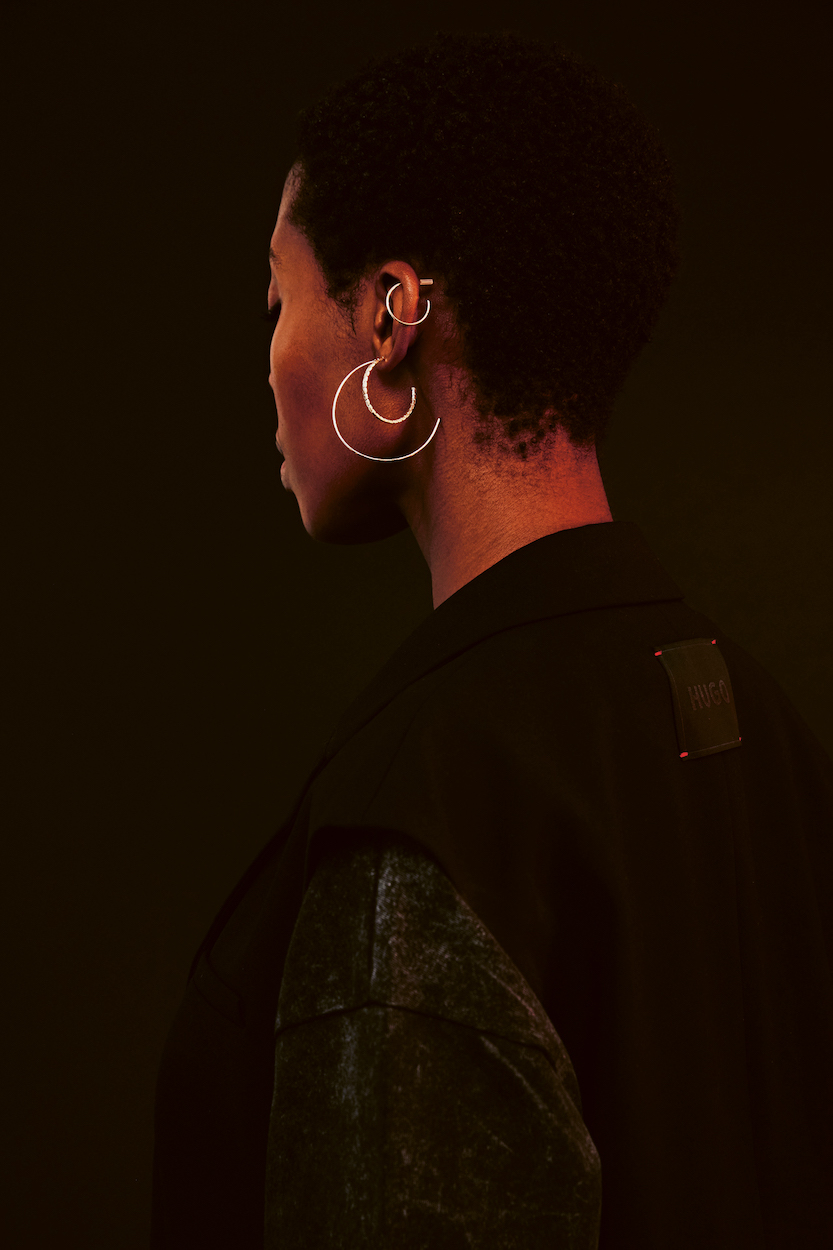
There has never been a hotter time to be a DJ than now. With DJs accruing the same level of renown and success historically given to popstars and the like, it’s no surprise that everyone wants a spotlight behind the decks. Ultimately, what separates a stellar DJ from a good one is a confluence of skill, talent, musical knowledge, a knack for capturing and building the moment, and a certain it quality. DESIREE happens to have it all.
The South African-born DJ who now refers to herself as a “citizen of the world” has built a career off of her eclectic, genre-bending mixes and knack for blending traditional African grooves with more popular beats, making her sound accessibly unique. Having gotten her humble start playing bars and house shows around Johannesburg, South Africa, DESIREE now travels the world, bringing the party wherever she goes.
Despite being an internationally acclaimed DJ, DESIREE still maintains that at the core of her practice is the desire and intention of connecting with her listeners – whether they be behind a computer screen or on the dance floor. Numéro Berlin chats with DESIREE on her musical rizz, her recent collab with HUGO, and what she thinks is the true spirit of a good party.
DESIREE: South Africa is my homeland, but the beauty of being a DJ is getting to travel the world and share my sound.
“I’m a citizen of the world now, so I live where the beat is.”
The music scene in South Africa is eclectic and ever evolving. House music is deeply loved there, but it’s not a monolith. You’ll hear Gqom, Kwaito, Jazz, R&B, all sorts of local flavors bumping alongside international sounds. It’s a beautiful melting pot that shaped my love for multi-genre sets. South African music is a constant source of inspiration.
While growing up, I had always been fascinated by music, and watching other DJs play at university just blew me away. I knew I wanted to be a part of it. I became a total dance floor fanatic. But there were times when I’d hear a track and think, “Man, this could be even better if…” That curiosity led me to learn how to DJ. Once I started stringing together sets that evoked a true journey for the crowd, I knew I was hooked. I learned from other DJs, built my music production skills, and now I am DJing professionally.
Honestly, there wasn’t one specific “this could be it” moment. It’s been more of a gradual climb, each gig, each booking, each connection building on the last. The first time I played a set outside of South Africa, the energy from the crowd was unreal. Then came bookings at iconic clubs like Fabric, DC10, and that solidified the feeling that this dream was taking flight. Rocking the Boiler Room in November last year was hot! Literally. Feeling the energy from the crowd, that global reach – it solidified that this music thing could be a real future, you know?
The best part? Definitely the connection with the crowd. Seeing people lose themselves in the music, feeling the energy flow back and forth – there’s nothing quite like it. Least favorite? Travel can be brutal sometimes. Jet lag is a real enemy of creativity!
Moving into production felt like a natural extension.
“DJing is all about curation, but producing lets me truly sculpt the sounds I hear in my head.”
It’s about translating that feeling, that story, into a track that resonates with people. It’s definitely a different creative muscle, and it allows me to express myself in a whole new way.
My creative process is constantly evolving. When I first started DJing, it was all about digging for hidden gems, building a library full of surprises. Now, it’s a blend of that, plus incorporating my own productions. Production itself is a journey – it’s become more intuitive, less about technical perfection and more about capturing the raw emotion.
Oh, absolutely! When I first started, I was pretty shy behind the decks. But the more I performed, the more comfortable I became. Now, I feed off the crowd’s energy, letting the music move me on stage. It’s a beautiful exchange.
Style-wise, I like to keep it comfortable yet sharp. It’s all about feeling confident and being able to move freely behind the decks. My personal style definitely influences my playing. I like to think my eclectic outfits reflect the energy I bring to my sets.
The music landscape is vast, but I navigate it by staying true to my sound.
“I don’t chase trends, I create my own lane.”
I’m not afraid to blend genres or experiment with layering and transitions. What makes a DESIREE show special? It’s the unexpected twists and turns along the way, all woven together by that driving, deep African groove. It’s high energy, it’s diverse, and it’s about creating a space where everyone feels welcome to lose themselves in the music.
Artists like Thom Yorke, Atoms for Peace, Jon Hopkins – they’re all masters of atmosphere, of building tension and release. That’s something I strive for in my own music. It’s not just about banging beats, it’s about creating an emotional arc, taking the listener on a trip.
I can’t spill all the beans just yet, but there’s definitely some exciting new music coming down the pipeline, including a remix of a very special, classic, South African jazz song. Stay tuned!
Both have their charm. Festivals are a whirlwind of energy, a chance to connect with a massive audience. Club gigs are more intimate, where you can really build a deep groove with the crowd. There’s no competition, just different ways to experience the music. I’m looking forward to all my shows, but I am most looking forward to taking my MMINO party outside South Africa for the first time in May! I find it significant, not only because the party is expanding, but also because it is happening at Colour Factory, the only large Black-owned venue that serves Queer and minority communities in London.
“Dance music was born from marginalized spaces, and it thrives on inclusivity and diversity.”

Blumarine, long synonymous with butterflies, chiffon and a distinctly Y2K aesthetic, has…
Interview by Chiara Anzivino
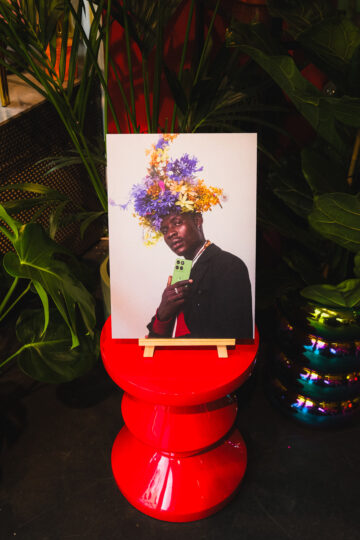
Motorola’s 2025 lineup of smart- and headphones leaves a fashionable impression.
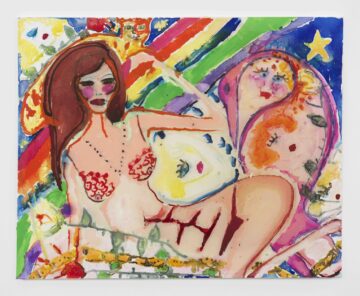
Paz de la Huerta presented Sacrifice, her second solo exhibition with Ruttkowski;68 in…